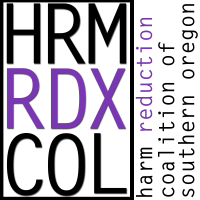Harm Reduction is a public health philosophy that seeks to empower individuals, remove barriers to accessing the support that they need, and supply pragmatic approaches to risk reduction in a non-judgmental/non-coercive way that is compassionate and accepting of any positive change. Harm Reduction supports a wide spectrum of strategies from doing the behavior more safely, to limiting certain behaviors, to abstinence.
Principles of Harm Reduction include:
- Meeting the client where they are, using programs designed for the community being served.
- Non-judgmental and non-coercive services are provided to clients in the communities and places where they are comfortable and safe in order to empower them to reduce the attendant harm.
- Accepts that drug use is part of our world and chooses to work to minimize its harmful effects on the people using drugs, rather than ignore or condemn those individuals.
- Understands that drug use and behavior change are complex and multifaceted. They include a continuum of behaviors from severe abuse to total abstinence.
- It acknowledges that some drug use methods are safer than others, and respects each individual’s drug use choices.
- Ensures that people who inject drugs and those with a history of drug use routinely have a real voice in the creation of programs and policies designed to serve them.
- Affirms that people who inject drugs are the primary agents responsible for reducing the harm from their drug use, and seeks to empower them to support each other and share information.
- Recognizes that the realities of poverty, class, racism, social isolation, past trauma, sex-based discrimination and other social inequities affect both people’s vulnerability to and capacity for dealing with drug-related harm.
- Does not attempt to minimize or ignore the real or tragic harm and dangers associated with licit and illicit drug use.

